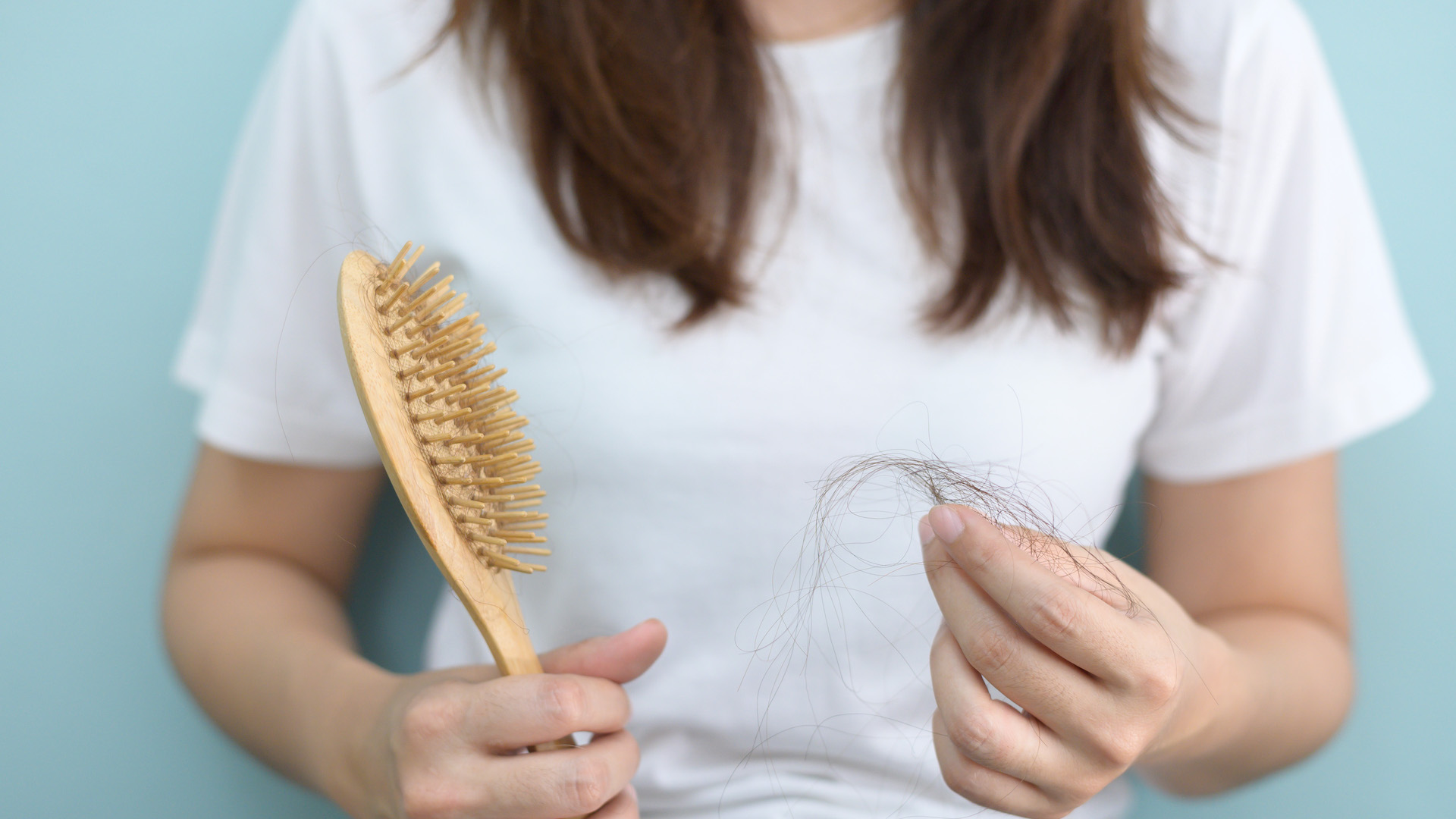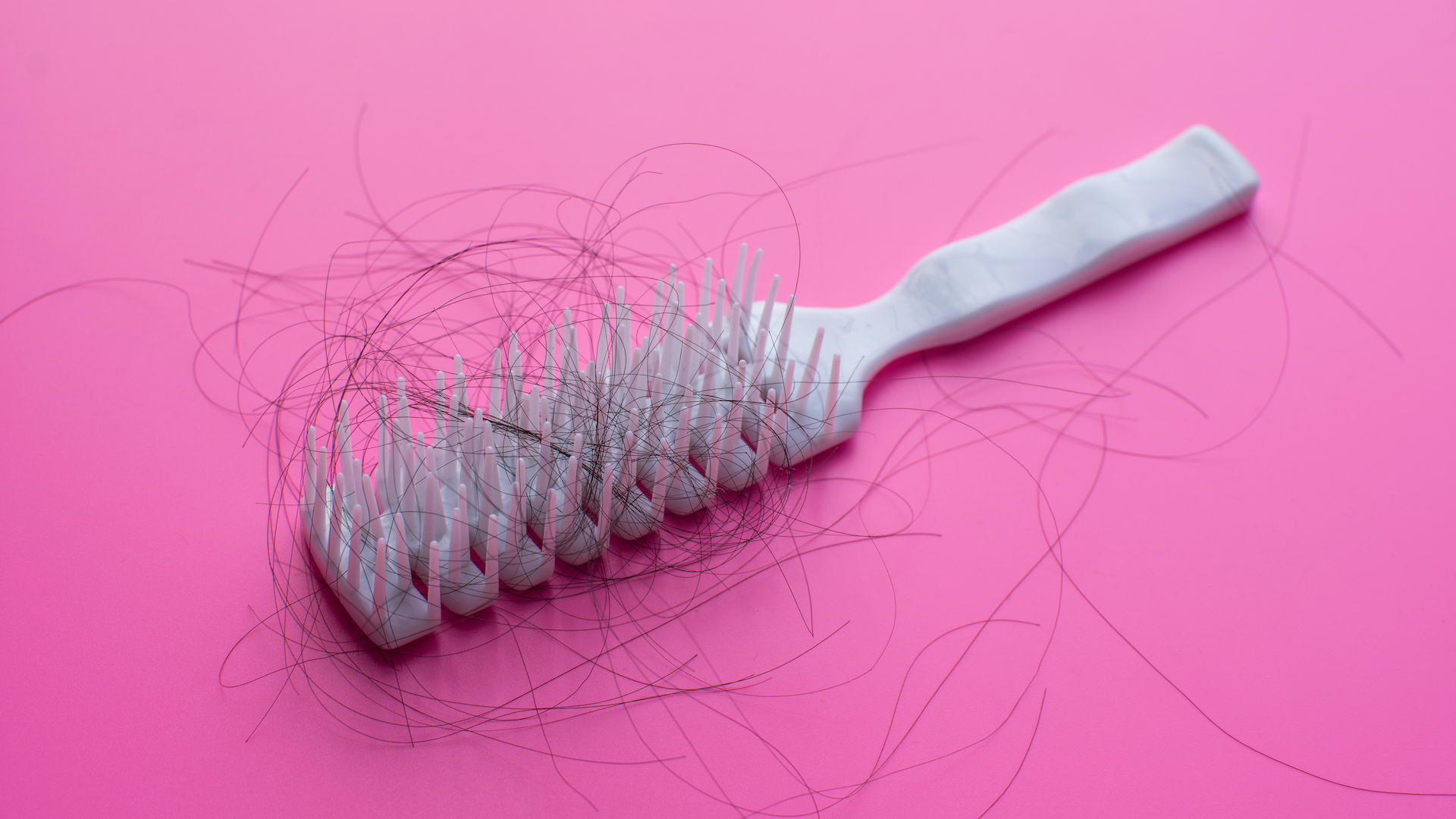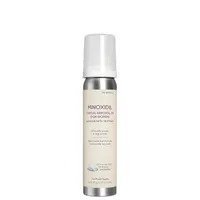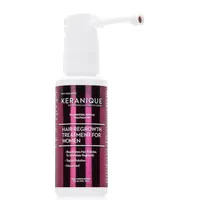Can birth control cause hair loss? Here's what the experts want you to know
'It depends on the balance of estrogen and progesterone,' says Dr. Doris Day, NYC-based dermatologist


Can birth control cause hair loss? We're sensitive about our strands, and should there be an issue with our locks, we are determined to get to the root of the problem—no pun intended.
When it comes to starting the pill, what gynecologists want you to know are the basics: how to take it correctly, what to do if you miss a dose, and, of course, possible side effects to expect, which can potentially include hair loss.
"It depends on the balance of estrogen and progesterone," says New York City-based dermatologist Dr. Doris Day says of the issue.
Before going into panic mode and overindulging on anti-thinning shampoo, here is what the experts have to say.
- Reasons why my period is late, according to medical experts
- Stress hair loss: why the pandemic is causing hair loss in young women
- Can the pandemic affect your period? New research tackles the reproductive health concern
Can birth control cause hair loss?
In short, yes, this is a possibility, but not a great one.
"It's important to note the vast majority of people who use hormonal birth control have no issues with hair loss," says obstetrician and author Dr. Jennifer Lincoln.
In fact, both Dr. Lincoln and Dr. Day note that birth control can actually be used to curb excessive hair growth, particularly facial hair for those suffering from PCOS.
But, should you find that the pill has made your typical strands feel a bit thinner, it's important to note the causes and ways to proceed.
How birth control causes hair loss
"Hormonal birth control can lead to hair loss in some users called telogen effluvium and it's not in the male pattern that we typically think of when we say 'hair loss,'" Dr. Lincoln notes. "It's distributed differently and called female pattern hair loss, or FPHL.
She continues: "Certain types of hormones that are said to have a higher androgen index can be more likely to cause this kind of FPHL."
In a case like this, hormones are put on pause when it comes to hair growth, then strands fall out as a result.
You'll want to confirm with a medical professional if the pill, in fact, is the culprit. As of late, plenty of stress hair loss has been a result of the traumatic times we live in. ('Can COVID cause hair loss?' has been the hot topic as of late, and it can, though per usual, the answer is complicated.)

What to do if you experience hair loss from your birth control
Though it goes without saying, you'll want to consult a dermatologist for treatment and, more importantly, to see if there are any underlying causes that are adding to the problem. You'll also want to speak with your OB/GYN regarding the type of pill you take, as some are more susceptible to causing hair loss than others.
"If you are particularly sensitive to hormonal changes, or if baldness runs in your family, you can opt for a low-androgen index birth control, which is less likely to trigger hair loss," says Dr. Michele Green, a New York City-based cosmetic dermatologist
Dermatologists will be able to prescribe medications like minoxidil (Rogaine), spironolactone and finasteride (Propecia), all of which can help promote new hair growth.
Dermstore, VIRTUE Flourish Minoxidil Foam 5 For Women 2.11 oz ($28)
Dermstore, Keranique Hair Regrowth Treatment for Women - 2 Minoxidil Topical Solution ($25)
Of course, you'll want to take matters into your own hands and adjust your lifestyle accordingly.
"Ensure you have a healthy diet rich in protein, iron, biotin and zinc," Dr. Green recommends. "Nutritional deficiencies in any of these areas can result in hair loss and result in dull-looking hair."
She also suggests looking into platelet-rich plasma treatment (PRP), a non-surgical method that utilizes your blood and isolates the platelet-rich-plasma portion of it. Meanwhile, Spironolactone can slow down the production of androgens like dihydrotestosterone (DHT), which is responsible for male- and female-pattern baldness.
All in all, there's no need to stress—solutions are available, but always consult with a medical professional before starting or stopping certain types of medications.

Need a TV show recommendation? Maybe a few decor tips? Danielle, a digital news writer at Future, has you covered. Her work appears throughout the company’s lifestyle brands, including My Imperfect Life, Real Homes, and woman&home. Mainly, her time is spent at My Imperfect Life, where she’s attuned to the latest entertainment trends and dating advice for Gen Z.
Before her time at Future, Danielle was the editor of Time Out New York Kids, where she got to experience the best of the city from the point of view of its littlest residents. Before that, she was a news editor at Elite Daily. Her work has also appeared in Domino, Chowhound, and amNewYork, to name a few.
When Danielle’s not writing, you can find her testing out a new recipe, reading a book (suggestions always welcome), or rearranging the furniture in her apartment…again.

